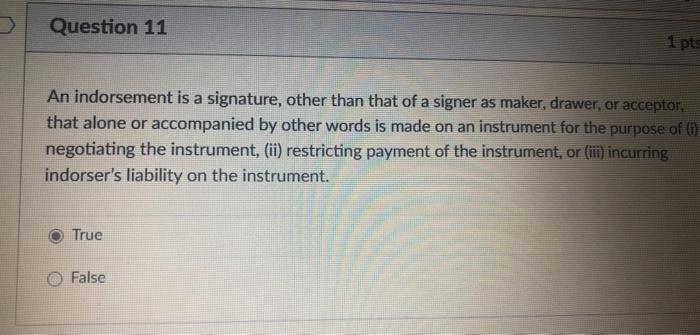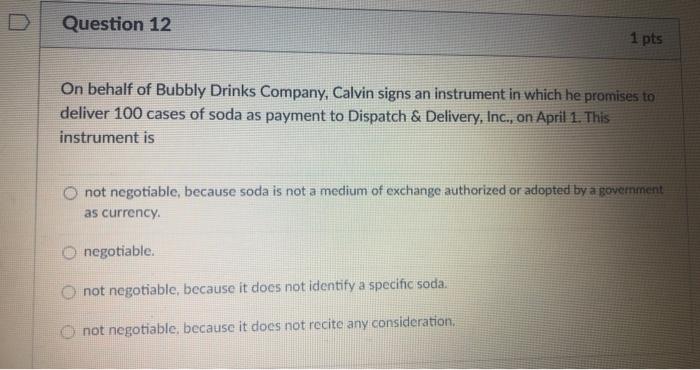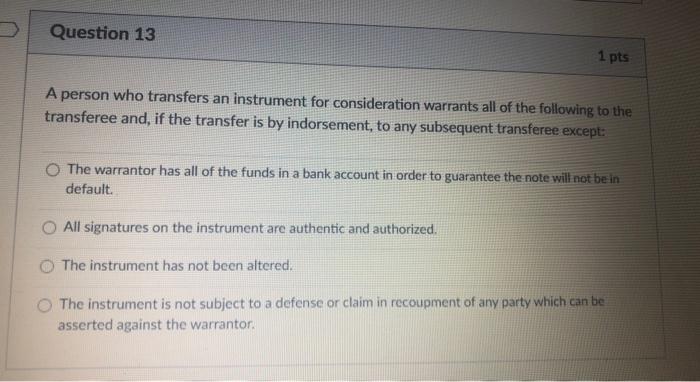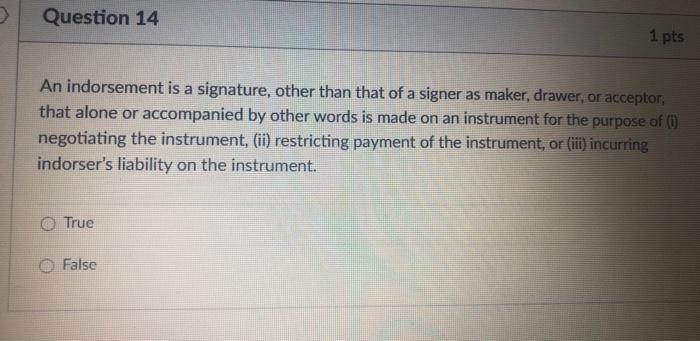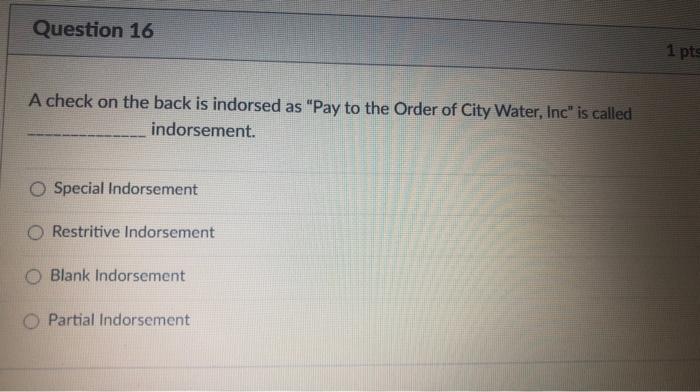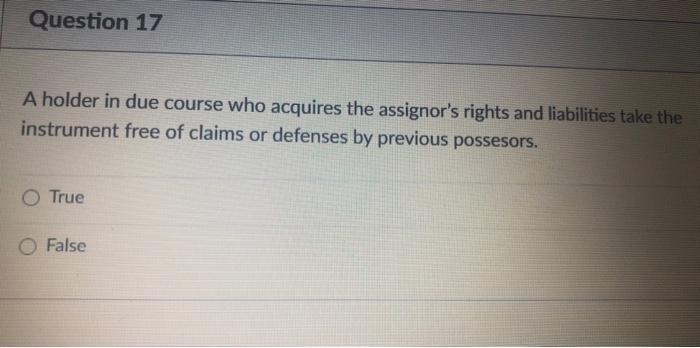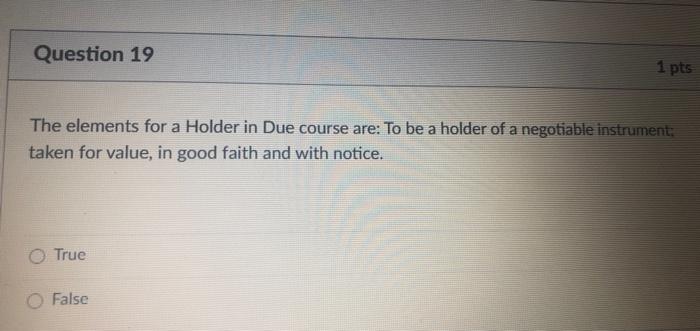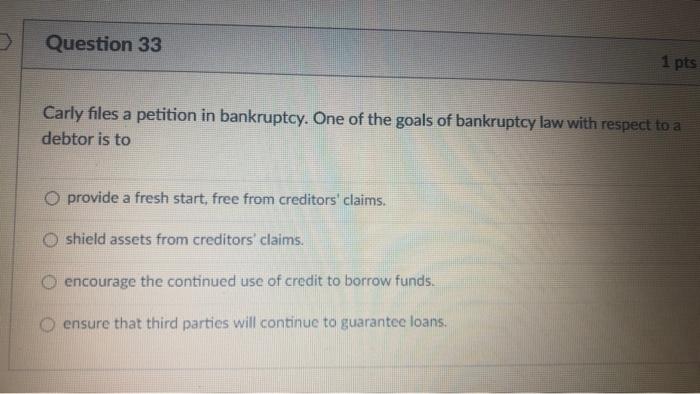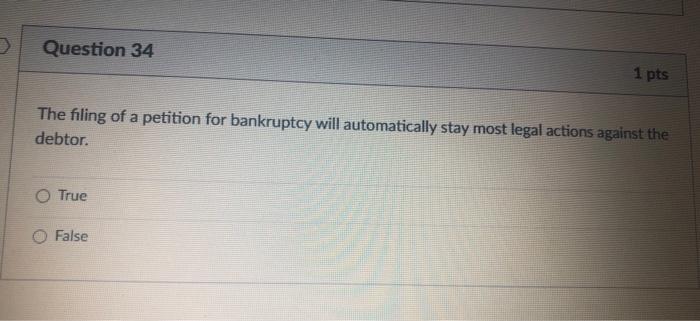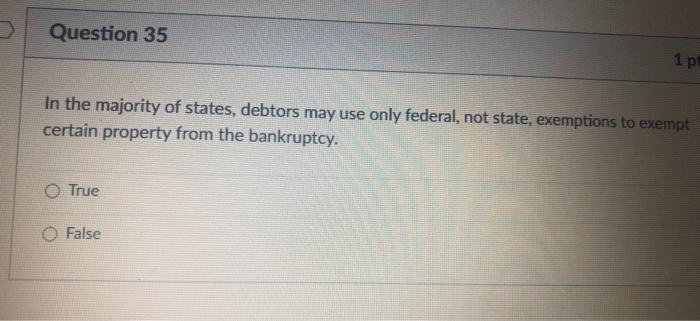An indorsement is a signature, other than that of a signer as maker, drawer, or acceptor, that alone or accompanied by other words is made on an instrument for the purpose of (i) negotiating the instrument, (ii) restricting payment of the instrument, or (iii) incurring indorser's liability on the instrument. True False On behalf of Bubbly Drinks Company, Calvin signs an instrument in which he promises to deliver 100 cases of soda as payment to Dispatch \& Delivery, Inc., on April 1. This instrument is not negotiable, because soda is not a medium of exchange authorized or adopted by a goyernment as currency. negotiable. not negotiable, because it does not identify a specific soda. not negotiable, because it does not recite any consideration. A person who transfers an instrument for consideration warrants all of the following to the transferee and, if the transfer is by indorsement, to any subsequent transferee except: The warrantor has all of the funds in a bank account in order to guarantee the note will not be in default. All signatures on the instrument are authentic and authorized. The instrument has not been altered. The instrument is not subject to a defense or claim in recoupment of any party which can beasserted against the warrantor. An indorsement is a signature, other than that of a signer as maker, drawer, or acceptor, that alone or accompanied by other words is made on an instrument for the purpose of (i) negotiating the instrument, (ii) restricting payment of the instrument, or (iii) incurring indorser's liability on the instrument. True False A check on the back is indorsed as "Pay to the Order of City Water, Inc" is called indorsement. Special Indorsement Restritive Indorsement Blank Indorsement Partial Indorsement A holder in due course who acquires the assignor's rights and liabilities take the instrument free of claims or defenses by previous possesors. True False The elements for a Holder in Due course are: To be a holder of a negotiable instrument: taken for value, in good faith and with notice. True False Carly files a petition in bankruptcy. One of the goals of bankruptcy law with respect to a debtor is to provide a fresh start, free from creditors' claims. shield assets from creditors' claims. encourage the continued use of credit to borrow funds. ensure that third parties will continue to guarantee loans. The filing of a petition for bankruptcy will automatically stay most legal actions against the debtor. True False In the majority of states, debtors may use only federal, not state, exemptions to exempt certain property from the bankruptcy. True False
